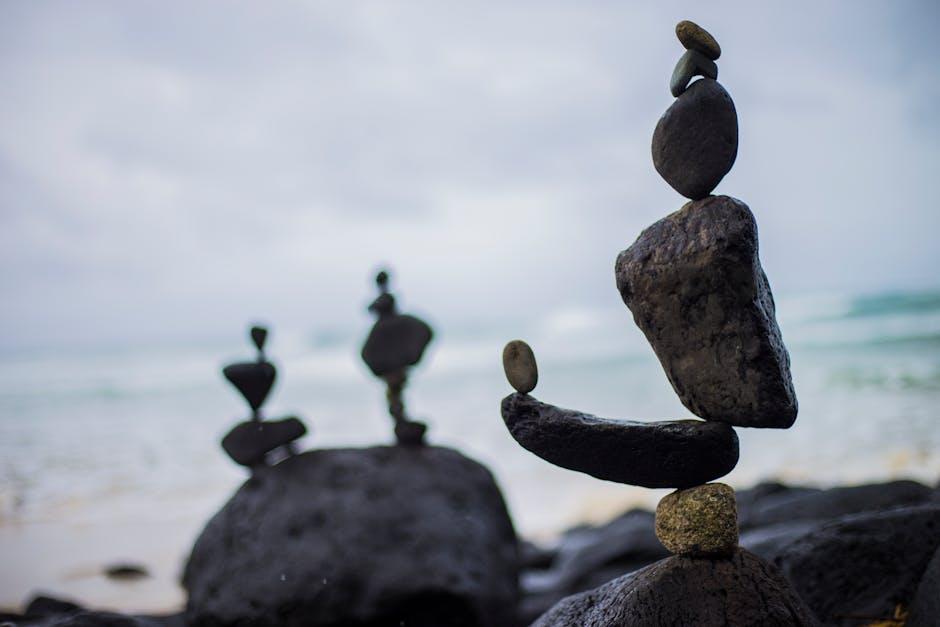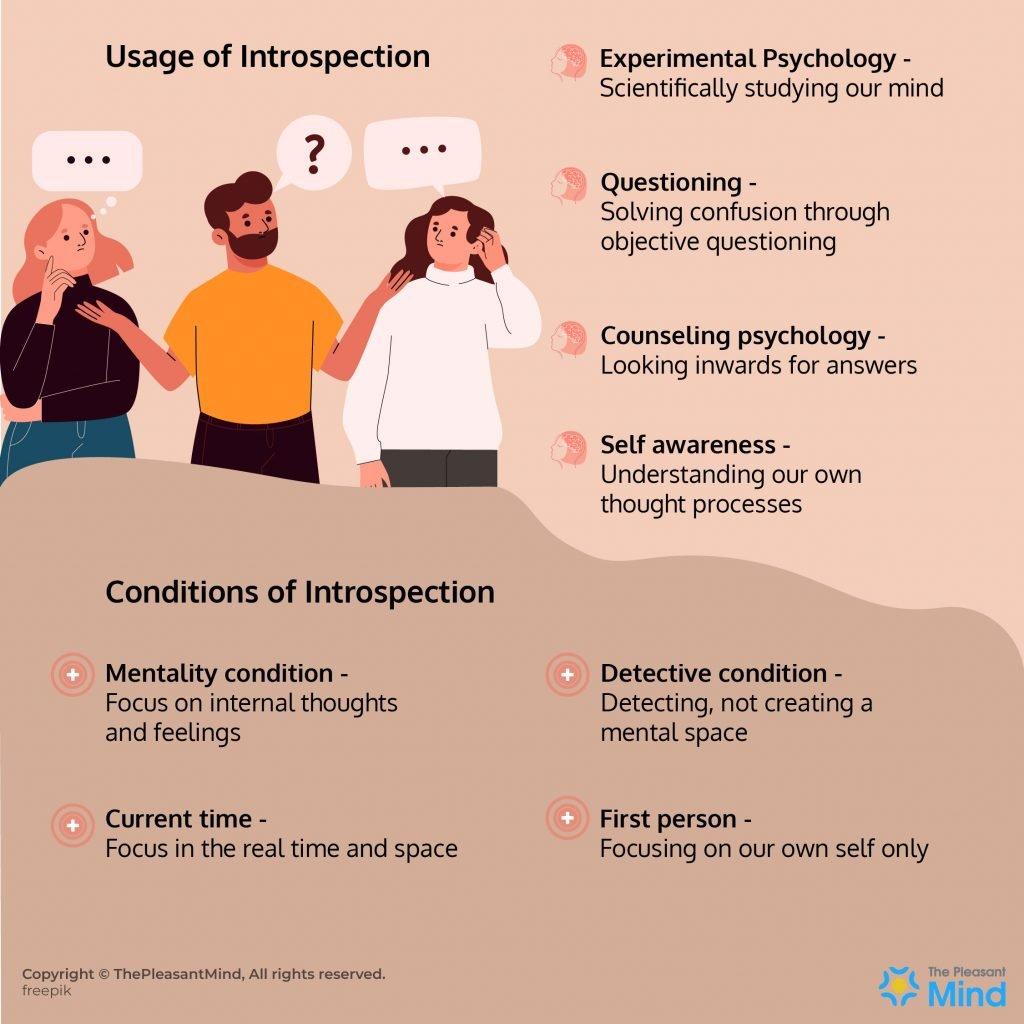In the quiet corners of our bustling world, where the cacophony of daily life is momentarily hushed, meditation offers a sanctuary of stillness. It’s a practice heralded for its potential to cultivate inner peace, enhance mindfulness, and foster emotional resilience. Yet, as more individuals turn inward to explore the depths of their consciousness, a curious question emerges from the tranquil silence: Does meditation encourage over-introspection? This inquiry delves into the intricate balance between self-awareness and self-absorption, inviting us to examine whether the quest for inner clarity might sometimes lead us into the labyrinth of excessive self-analysis. In this exploration, we navigate the delicate dance between mindfulness and rumination, seeking to understand the nuanced impact of meditation on the human psyche.
Exploring the Balance Between Mindfulness and Self-Absorption
- Understanding Mindfulness: At its core, mindfulness is about being present in the moment, cultivating a sense of awareness without judgment. It’s a practice that encourages individuals to observe their thoughts and emotions, fostering a deeper connection with their inner selves.
- The Risk of Over-Introspection: While mindfulness can be a powerful tool for personal growth, there is a fine line between self-awareness and self-absorption. Over-introspection can lead to an excessive focus on one’s thoughts and feelings, potentially resulting in anxiety or self-centeredness.
- Striking the Balance: To maintain equilibrium, it is crucial to incorporate mindfulness practices that promote a healthy detachment from one’s thoughts. Techniques such as guided meditation or mindful breathing can help individuals observe their mental patterns without becoming overly entangled in them.
It’s important to remember that mindfulness is not about dissecting every thought but about creating space for thoughts to exist without judgment. By doing so, individuals can nurture a balanced perspective, embracing the benefits of mindfulness without falling into the trap of over-introspection.

The Psychological Impacts of Deep Introspection During Meditation
Engaging in deep introspection during meditation can significantly influence one’s psychological landscape. While meditation is often celebrated for its calming effects and ability to enhance self-awareness, it can sometimes lead individuals into a labyrinth of self-analysis that borders on over-introspection. This intense self-examination can be both enlightening and overwhelming, depending on the individual’s mental state and the context in which meditation is practiced. Some practitioners find that meditation provides a mirror to their innermost thoughts, offering a chance to confront unresolved emotions and mental patterns. However, this journey inward can sometimes lead to a heightened state of self-consciousness, where one becomes overly critical or fixated on personal shortcomings.
Potential psychological impacts of deep introspection during meditation include:
- Increased Self-Awareness: Recognizing and understanding personal emotions and thoughts.
- Enhanced Emotional Regulation: Developing the ability to manage and respond to emotions effectively.
- Potential for Self-Criticism: Risk of becoming overly critical or judgmental of oneself.
- Improved Problem-Solving: Gaining new perspectives on personal issues and challenges.
- Risk of Anxiety: Potential to trigger anxiety if unresolved issues come to the surface.
For some, the journey of introspection is akin to peeling back the layers of an onion, each layer revealing deeper truths. For others, it can be a source of distress if not approached with mindfulness and balance. It’s crucial to recognize when introspection becomes counterproductive and to balance it with other meditative practices that focus on external awareness or simple presence.

Expert Opinions on the Benefits and Risks of Meditation Practices
Engaging with meditation can be a double-edged sword, according to experts. On one hand, meditation is lauded for its ability to enhance mental clarity, reduce stress, and promote a sense of peace. Benefits often highlighted include:
- Improved focus and concentration
- Enhanced emotional resilience
- Reduction in anxiety and depression symptoms
- Better sleep quality
However, some experts caution against the potential risks of over-introspection. There is a concern that excessive meditation may lead to increased self-absorption, which could result in:
- Heightened self-criticism
- Isolation from external realities
- Potential neglect of practical responsibilities
- Amplified negative emotions
Finding a balance is key, as practitioners are encouraged to remain grounded in their daily lives while reaping the profound benefits of meditation.
Strategies for Maintaining Healthy Self-Reflection While Meditating
While meditation can sometimes lead to over-introspection, maintaining a healthy balance is key to ensuring it remains a beneficial practice. Here are some strategies to keep self-reflection in check during meditation:
- Set Clear Intentions: Before beginning your meditation session, set a specific intention or focus point. This can prevent the mind from wandering too deeply into introspective rabbit holes.
- Limit Session Length: Start with shorter meditation sessions to avoid overwhelming introspection. Gradually increase the time as you become more comfortable with managing your thoughts.
- Embrace Guided Meditation: Utilizing guided meditations can help anchor your mind and provide structure, steering you away from excessive self-analysis.
- Practice Mindful Observation: Instead of diving into every thought, practice observing them as they pass. This encourages a non-judgmental awareness rather than deep introspection.
- Incorporate Body Awareness: Shifting focus to physical sensations can balance the mental focus and reduce the tendency for over-analysis.
The Way Forward
As we draw our exploration of meditation and its potential for over-introspection to a close, it becomes clear that the journey inward is as varied as the individuals who embark upon it. Meditation, with its roots entwined in centuries of wisdom, offers a mirror to the soul—a reflective surface that can illuminate the depths of our inner landscapes. Yet, as with any powerful tool, it requires a balance of intention and awareness to wield effectively. While some may find themselves lost in the labyrinth of their thoughts, others may discover a newfound clarity that guides them through the complexities of life. Ultimately, the key lies in understanding one’s unique path and embracing meditation as a practice of balance, where introspection becomes a means to cultivate mindfulness rather than a descent into the maze of self. As we step away from this contemplation, let us carry with us the notion that the mind, much like the universe, is vast and full of potential—waiting for us to explore, understand, and harmonize.
